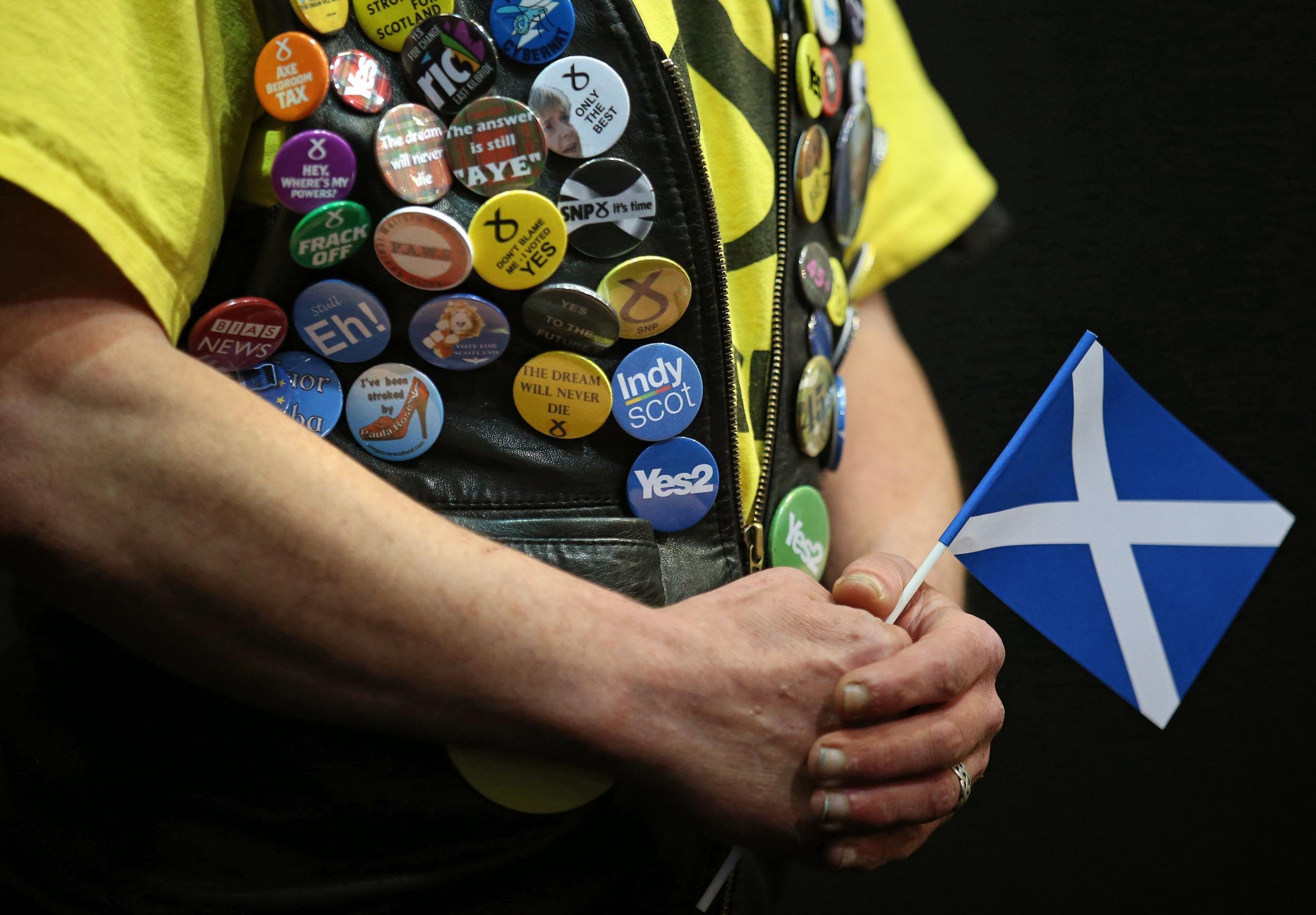BBC accused of telling 'more half truths and lies than the Nazis' at SNP conference
Activists at SNP fringe meeting also criticised the BBC for underplaying coverage of Andy Murray’s achievements and failing to sufficiently report on independence movements elsewhere in the world

Your support helps us to tell the story
From reproductive rights to climate change to Big Tech, The Independent is on the ground when the story is developing. Whether it's investigating the financials of Elon Musk's pro-Trump PAC or producing our latest documentary, 'The A Word', which shines a light on the American women fighting for reproductive rights, we know how important it is to parse out the facts from the messaging.
At such a critical moment in US history, we need reporters on the ground. Your donation allows us to keep sending journalists to speak to both sides of the story.
The Independent is trusted by Americans across the entire political spectrum. And unlike many other quality news outlets, we choose not to lock Americans out of our reporting and analysis with paywalls. We believe quality journalism should be available to everyone, paid for by those who can afford it.
Your support makes all the difference.The BBC tells more “half truths and lies” than the Nazis according to SNP activists who vented their anger against the broadcaster’s apparent bias during last year’s Scottish independence referendum.
BBC executive Ewan Angus chaired a fringe at the SNP’s conference in Aberdeen on Friday evening and was heckled by SNP members in the audience, angry at what they believe to be coverage that is slanted towards the pro-union Westminster establishment.
Activists even accused the BBC of underplaying coverage of Andy Murray’s achievements, failing to display Scotland to size on weather maps and failing to sufficiently report on independence movements elsewhere in the world.
Anger at the BBC’s perceived bias in last year’s referendum campaign led to street protests against the then BBC political editor Nick Robinson, who was singled out for criticism by Alex Salmond.
The former First Minister said Mr Robinson should be “ashamed and embarrassed” with his coverage, but the BBC journalist hit back, comparing the way Scottish nationalists treated journalists was akin to Vladimir Putin’s handling of the media in Russia.
SNP Glasgow councillor Phil Green told the meeting: "Max Hastings, who is a fairly eminent historian, in his reflections on the Second World War with regards to propaganda said that Goebbels ... fighting against the BBC was boxed out of the park because the BBC had a far greater mixture of half truths and lies than the Germans.
“I don't think things have changed that much,” he added.
Scotland's Culture Secretary Fiona Hyslop agreed with criticism of the BBC’s “bias” but insisted pro-independence supporters must be “calm” in debating the issue, warning that “closed minds” could undermine efforts to resolve the “real challenge” faced by the BBC over its coverage of Scotland as it negotiates the renewal of its charter with a hostile Conservative government.
"We've got to work with the BBC and BBC Scotland to get where we want to,” she told the fringe meeting at SNP’s biggest ever party conference in Aberdeen. “If we close our minds to that then I think we are all going to lose out.
"I expect journalists to call government to account - that what's good democracy is, freedom of speech. But I do think there's a general point about how our country is reflected to itself.
"There's no reason why (BBC Scotland political editor) Brian Taylor can't be telling the story of Scotland within the rest of the UK. Do we really need to parachute somebody in who doesn't know Scotland as well?”
Mr Angus defended the BBC’s coverage, dismissing claims of political bias, but accepted the broadcaster had an “issue” with the failure of its news coverage to reflect adequately the realities of devolved government in Scotland and the other nations of the UK.
"I do not accept its biased. This could turn easily into some kind of a slanging match if that's what people prefer but it's certainly not what I'm here for," he said.
"The BBC does understand that there is an issue that needs to be addressed in terms of the news offer in the nations.
"It would be fair to say that the BBC as a whole has been slow to respond to the changing face of the UK and the impact of devolved institutions.
"What we need now is to move forward with a shared ambition to improve these aspects of the offer for the audience in Scotland.
"What we have announced is that there will be a change and a consultation before that happens."
Join our commenting forum
Join thought-provoking conversations, follow other Independent readers and see their replies
Comments